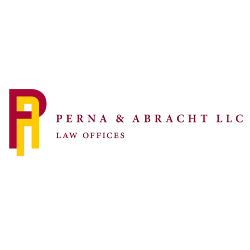Driving under the influence of alcohol or drugs is a serious problem in Pennsylvania. According to the Pennsylvania Department of Transportation (PennDOT), there were 8,683 alcohol-related crashes in the state in 2020, resulting in 8363 injuries and 320 fatalities. In 2022, alcohol-related fatalities were 27% of the total traffic fatalities. In the 26 to 30 age group, 41% of the driver fatalities were drunk drivers.
These statistics
highlight the dire consequences of DUI, not only for impaired drivers, but also
for innocent bystanders who may become victims of these accidents.
An experienced DUI attorney can offer sound advice in case you are charged and guide you through all the procedures.
Ridesharing services
have taken the transportation industry by storm, changing the way people get
from one place to another. Pennsylvania, like many other states, has seen a
significant increase in the popularity of ridesharing services such as Uber and
Lyft. Beyond their convenience, these services have also provided a safer
alternative to driving under the influence (DUI).
The Role
of Ridesharing Services in Reducing DUI Cases:
Convenience: Ridesharing apps are incredibly user-friendly. Users can request a ride with a few taps on their smartphones, and a driver will arrive at their location within minutes. This convenience makes it easy for people to opt for a safe ride home when they have been drinking.
Availability: Ridesharing services are available around the clock, 365 days a year. This availability means that there is always a safe alternative to driving impaired, no matter the time or location.
Affordability: DUI convictions can result in hefty fines, license suspensions, increased insurance premiums, and jail time. In comparison, ridesharing services offer a cost-effective alternative. Paying for a ride is a small price to pay compared to the financial and legal consequences of a DUI.
Designated Drivers: Ridesharing services can act as a modern version of the designated driver concept. Friends can share a ride or designate one person to use a ridesharing service to ensure everyone gets home safely.
Protections for Passengers: For safety, ridesharing platforms penalize drivers if they are found to be under the influence of any substance, and most vehicles are equipped with SOS features. These safeguards enable you to have peace of mind while availing yourself of a ride.
Public Awareness: Ridesharing
companies often partner with local governments and organizations to promote
responsible drinking and to provide safe alternatives. These partnerships raise
awareness about the dangers of DUI and the availability of ridesharing
services.
Conclusion
Despite the evidence suggesting that rideshare services can reduce the occurrence of drunk driving accidents and severe injuries, there are still individuals who make the bad and costly decision to drive under the influence. Although anyone can make mistakes, some mistakes have more profound negative consequences, impacting not only your life but also the lives of others.
If you or a loved one
has been impacted by a DUI accident, you do not have to go through it alone. We
serve clients throughout Southeastern Pennsylvania and Northern Delaware. Contact
our Chester County criminal defense attorneys
online or call 610-708-1970 to schedule a consultation with an experienced DUI
attorney today.
This blog was originally posted on https://pa4law.com/how-ridesharing-services-are-reducing-dui-accidents/

























